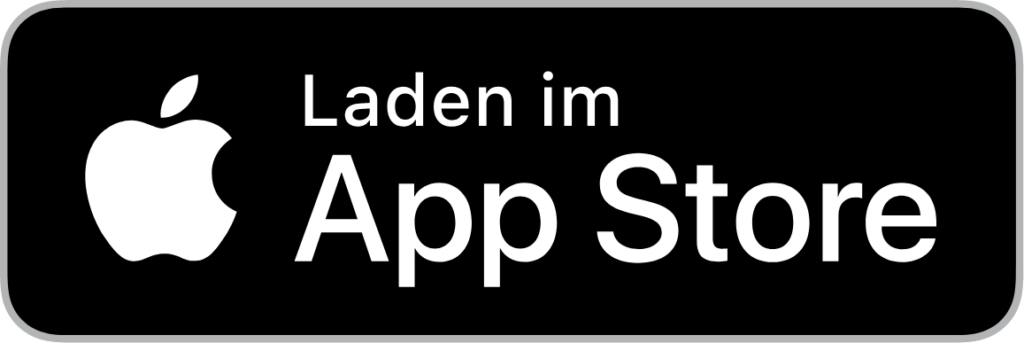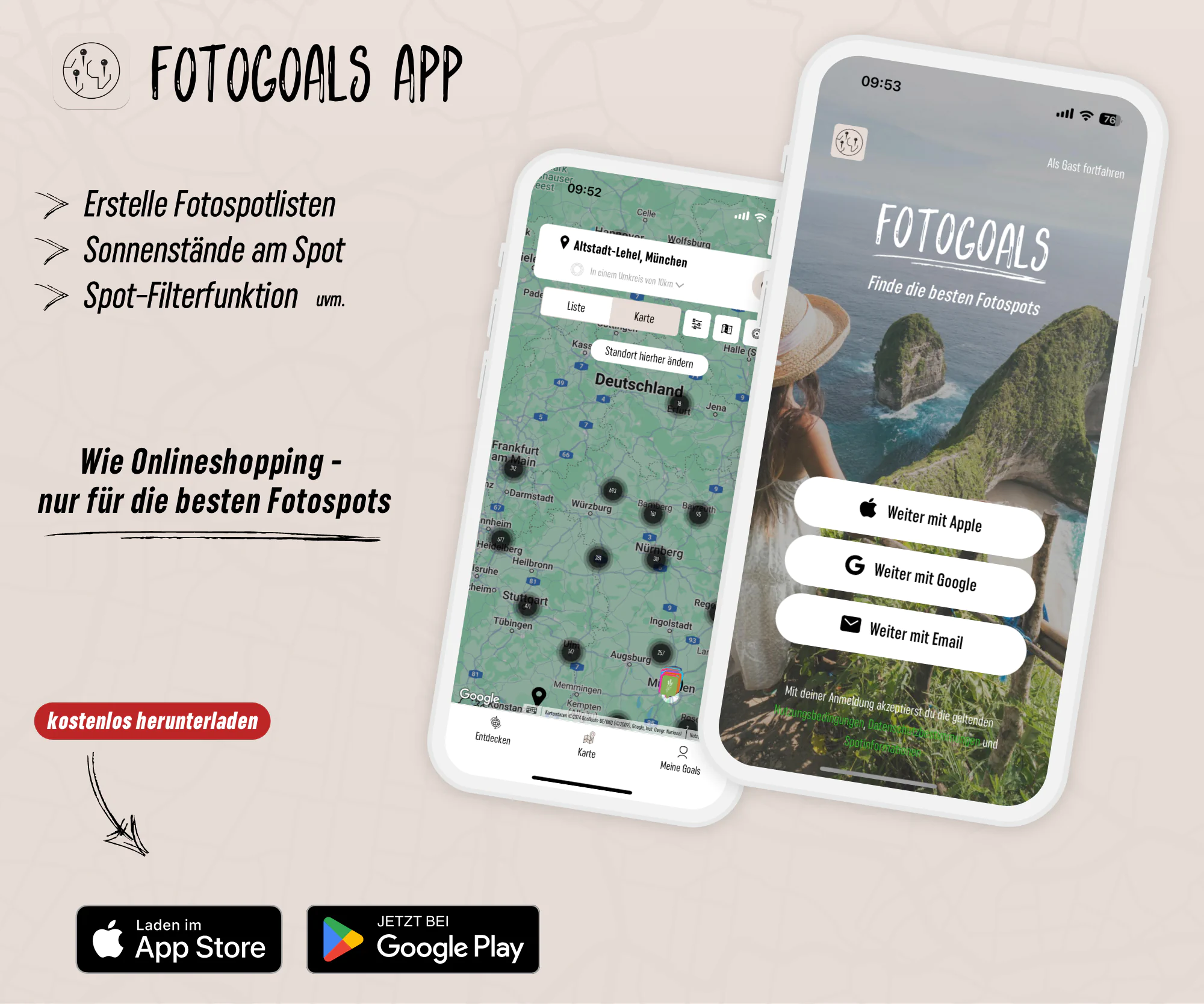Qatar
Immerse yourself in the fascinating world of Qatari landscapes, architecture and culture, which offer a rich diversity and unparalleled beauty. From the modern skyscrapers and luxurious shopping malls of Doha to the traditional souks and desert landscapes, Qatar offers a wealth of photo opportunities to delight any photography enthusiast.
Culture and innovation in one country
Photo spots in Qatar

Welcome to the land of deserts and skyscrapers – Qatar, where photo spots invite you on a journey through the many facets of culture, history and breathtaking landscapes. From the modern skyscrapers and luxurious shopping malls of Doha to the vibrant city life of Al Wakrah, traditional souks and desert landscapes, Qatar’s nature and architecture reflect a fascinating diversity that will inspire any photographer.
Explore the historic forts and museums, the charming coastal villages and the impressive sand dunes and beaches along the coast. Qatar is a country full of contrasts, characterized by its rich history and cultural diversity, enchanting its visitors with every photo spot. From the small hidden gems to the vibrant cities, Qatar offers a seemingly endless array of photo opportunities waiting to be discovered. Get ready to be captured by the beauty of this country and start your photo journey through Qatar.
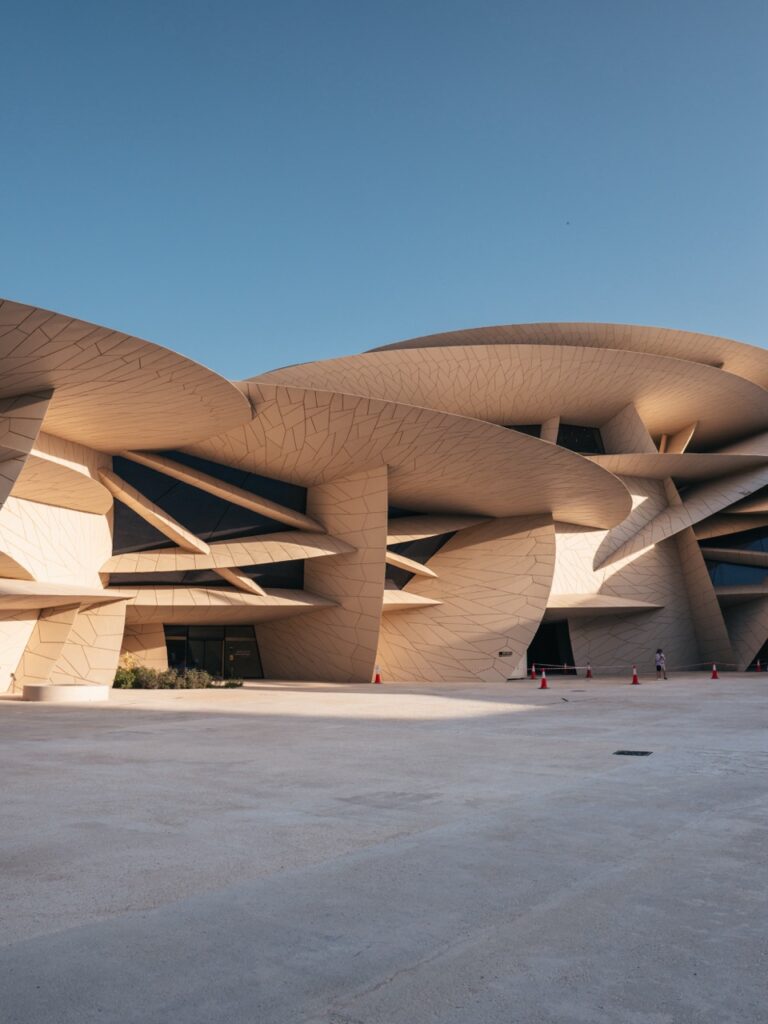
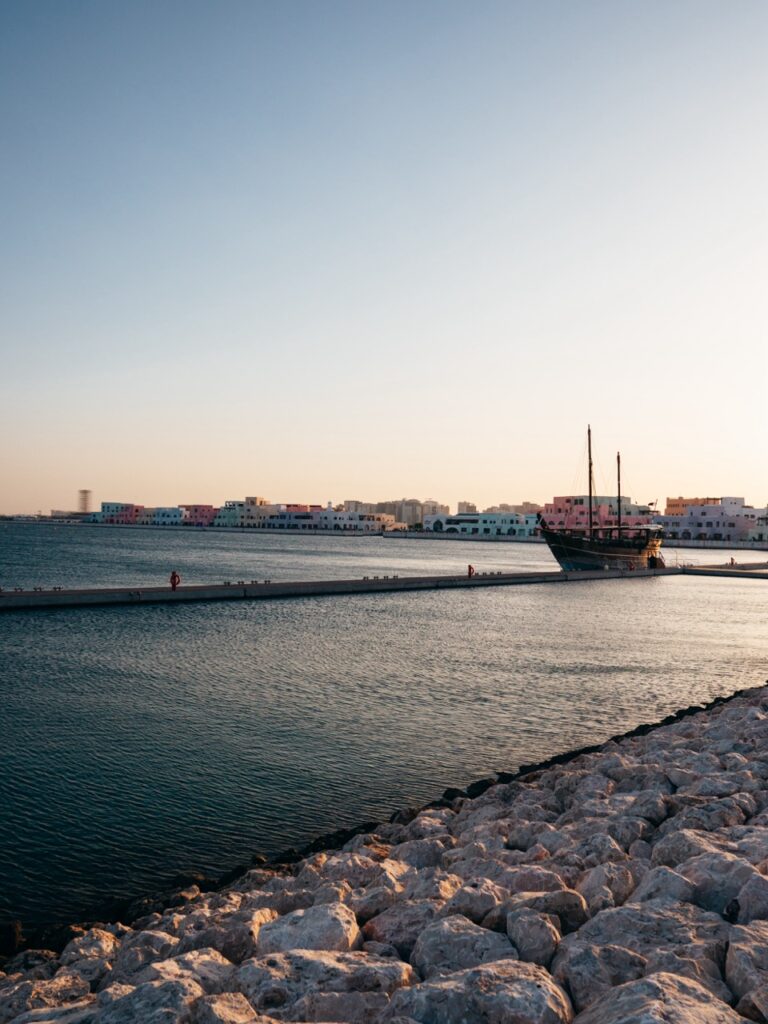
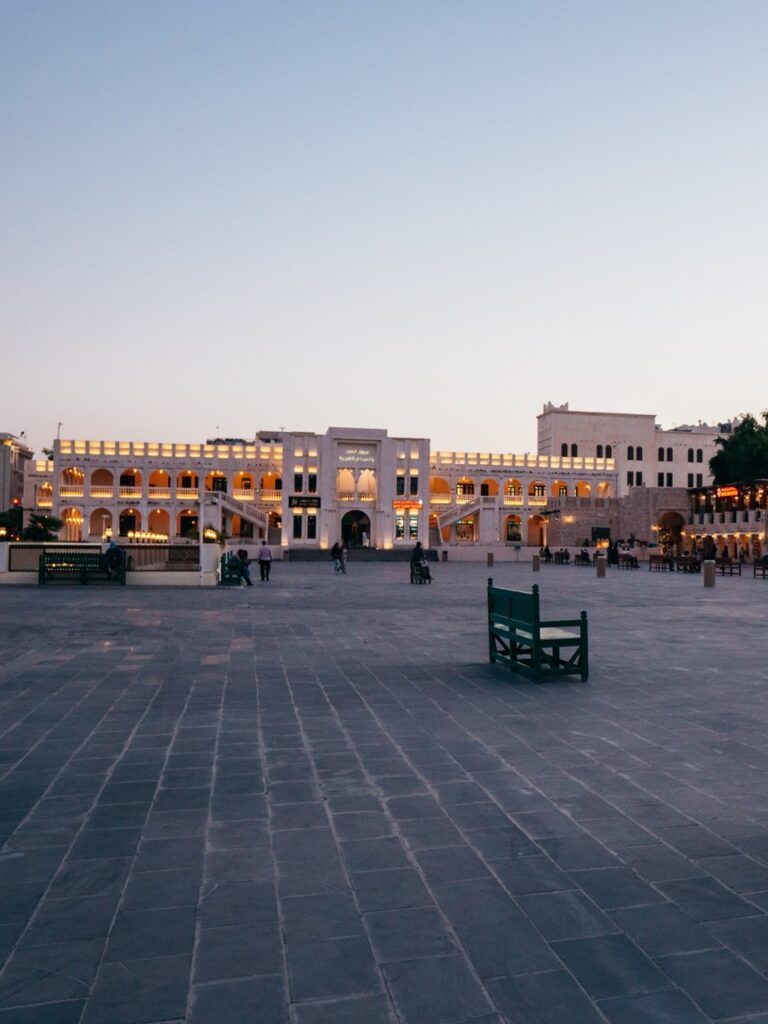
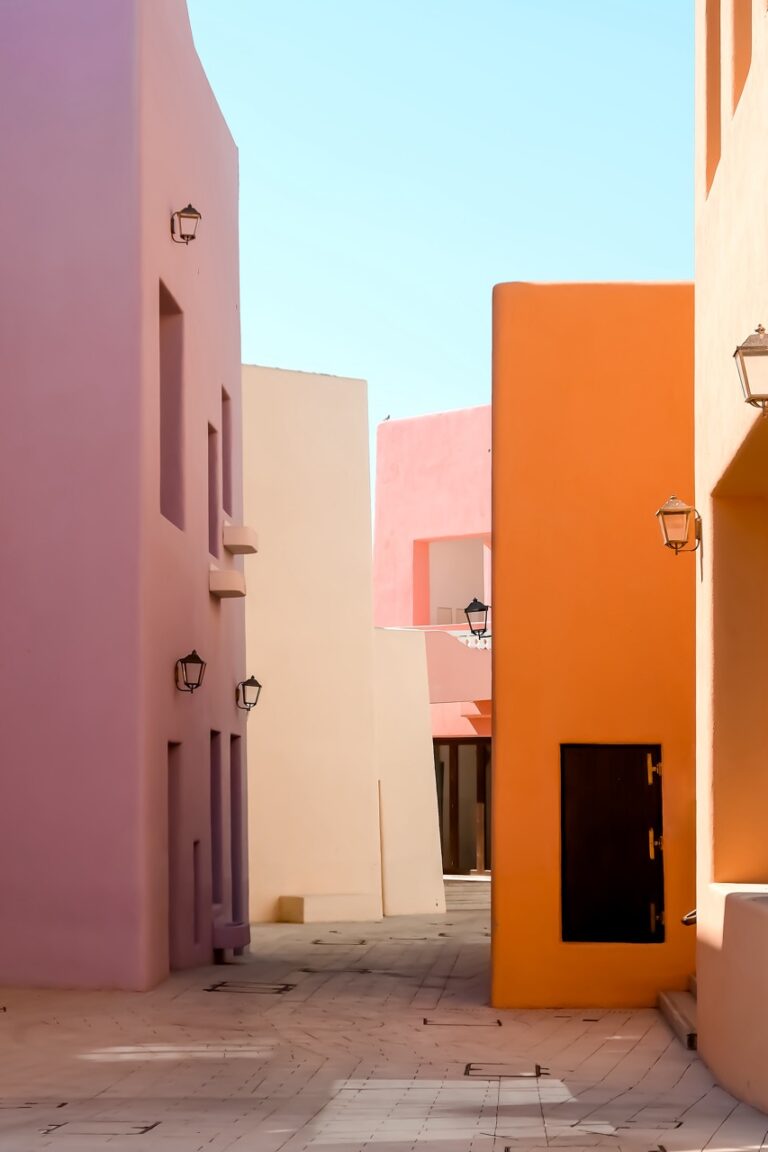
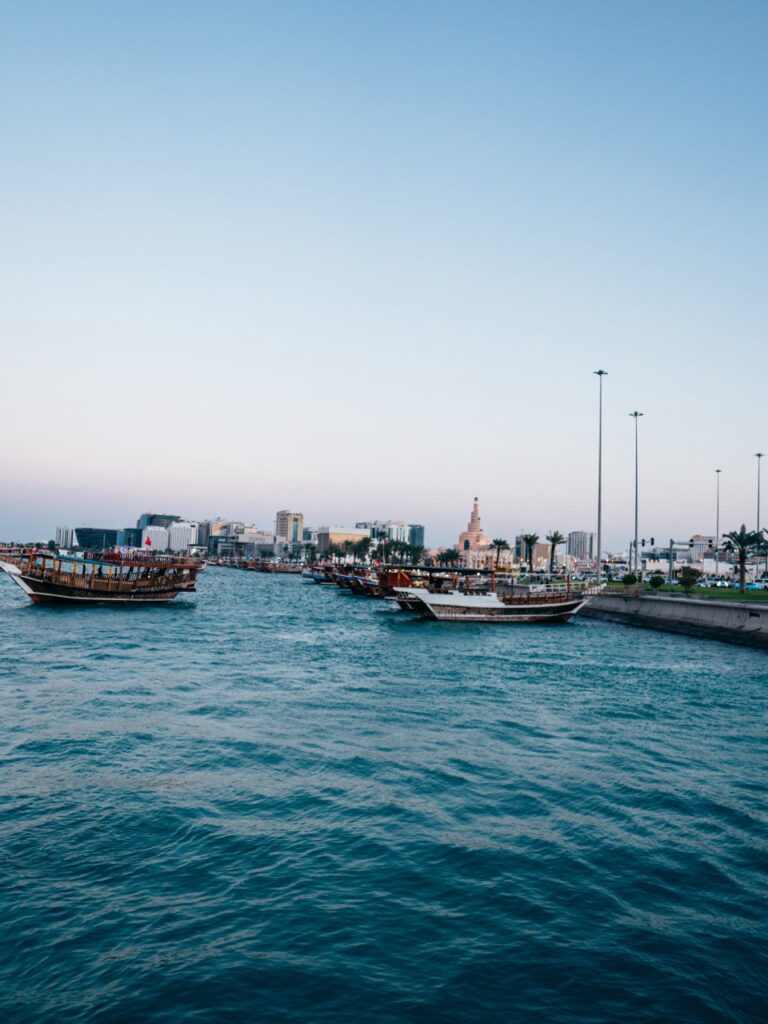
Good to know

Here you will find important information for your visit to Qatar or for your trip through this fascinating country in the Middle East. We’ll give you everything you need to get the most out of your stay in Qatar. Let’s go on a journey of discovery together and experience the best photo spots with Fotogoals.
Regions
Qatar is divided into eight municipalities (Baladiyat): from Doha via Al Rayyan and Al Wakrah to Al Khor and Al Shamal. These regions each offer their own unique sights and cultural highlights. From the modern skyscrapers of Doha to the traditional souks and desert landscapes, Qatar offers a rich diversity to explore.
Currency
The official currency in Qatar is the Qatari riyal (QAR), which is accepted as a means of payment throughout the country. The country’s largest banks include Qatar National Bank (QNB), Qatar Islamic Bank (QIB), Commercial Bank of Qatar and Doha Bank. ATMs can be found in banks as well as in many public places such as shopping centers, train stations and airports, making access to cash convenient and easy.
Grocery
In Qatar, most supermarkets and discount stores are open from Saturday to Thursday from around 7 or 8 am until 10 or midnight. On Fridays, many stores open later, often after Friday prayers. Some of the most popular retailers include Carrefour, Lulu Hypermarket, Al Meera and Monoprix. They offer a wide selection of food and other products at affordable prices.
Transportation
There are a variety of transportation options in Qatar. Qatar Rail offers an extensive train network for domestic travel, including the Doha Metro. Cities have public transportation such as buses. You can book a variety of services (cab, car or bus) via Karwa. There are also classic car rental companies for flexible transportation options.
Restaurant
Qatar has a diverse restaurant scene that offers something for every taste and budget. In addition to traditional restaurants serving Qatari cuisine, there are also a number of international chains and food stalls offering a wide range of dishes, from mezze to sweet desserts. Prices for main meals average between 50 and 150 QAR. It is customary to tip around 10% if no service charge is included.

Qatar - FAQ: Travel
Here you will find the answers to the most frequently asked questions about traveling to Qatar
If you want to visit Qatar, the best time to visit depends on your personal preferences and the activities you are planning. Winter (November to March) offers pleasant weather and is ideal for outdoor activities and sightseeing. Summer (June to August) is very hot, but ideal for indoor activities and visiting air-conditioned shopping centers and museums. Spring (April to May) and fall (September to October) offer mild weather and fewer tourists, which is perfect for sightseeing and cultural events. When planning your trip, consider your personal preferences and interests to find the best time to visit Qatar.
If you wish to enter Qatar, the need for a visa depends on your nationality, the purpose of your stay and the intended duration. Nationals of many countries do not require a visa for short-term stays of up to 30 days for tourism or business purposes. However, a visa may be required for longer stays or other purposes. It is important to check the current entry requirements and apply for a visa in good time if necessary.
If you are planning a vacation trip to Qatar, Hamad International Airport (DOH) in Doha is the main airport where most international flights land. This airport is the largest and busiest in the country and offers a wide range of connections. The airport is well connected to the public transportation network. If you have a specific destination in mind in Qatar, it may make sense to choose the nearest regional airport. Find out about the various options in advance and choose the airport that best suits your travel plans.
If you are traveling to Qatar, no special vaccinations are usually required. However, it is recommended that you keep your standard vaccinations up to date according to your home country's vaccination calendar. If you are traveling from countries with yellow fever infection areas, you may need to provide proof of a yellow fever vaccination. It is advisable to find out about current health and entry regulations before you travel and to seek medical advice if necessary.
Yes, many people in Qatar speak English as it is a widely spoken language, especially in urban areas, tourist centers and in business. English is often learned as a second language at school. In hotels, restaurants, stores and tourist attractions, it is common for staff to speak English to communicate with international visitors. If you don't speak Arabic, you can usually communicate in English to find your way around and get help.
Qatar - FAQ: Daily life
Here you will find the answers to the most frequently asked questions about daily life in Qatar
In Qatar, the voltage is 240 volts and the frequency is 50 Hertz. The sockets correspond to the British type G. If you come from a country that uses other plug types, you may need an adapter to connect your electronic devices. These adapters are available in most electronics stores, airports and hotels. It is recommended that you check whether you need an adapter before your trip to ensure that your electronic devices can be used without any problems.


In Qatar, tap water is technically safe and meets international drinking water standards as it is treated through extensive desalination processes. However, many locals and expats prefer bottled water, mainly because of the taste and potential concerns about water quality in older buildings or pipelines.
There are a few points to note here:
-
Taste: Due to the desalination process, tap water in Qatar can have a taste that some people find unpleasant.
-
Safety: While the water from the desalination plants is safe, contamination can occur in the local pipes or water tanks, especially in older buildings.
-
Bottled water: Bottled water is widely and easily available. Many people prefer to drink bottled water to ensure that it is free from contaminants.
If you are unsure, you can use bottled water or boil the tap water before drinking it. In hotels and modern buildings, tap water is usually safer, but it's always a good idea to check with the locals or accommodation staff.
Payment by card, especially by credit card, is widespread in Qatar. In larger stores, restaurants and bars in cities or tourist regions, payment by credit card is generally accepted. However, some smaller stores or rural areas may only accept cash. It is therefore advisable to find out in advance whether payment with your credit card is possible. Visa and Mastercard are accepted almost everywhere, while American Express can sometimes cause problems. All cards are usually accepted in supermarkets, as are Apple Pay and Google Pay. It is always a good idea to have both cash and a credit card with you to be prepared for all eventualities.
In Qatar, you can buy alcohol in special licensed stores such as the Qatar Distribution Company (QDC). The sale of alcohol is strictly regulated and only permitted for non-Muslims. Alcohol can be consumed in most hotels, bars and restaurants that have a license. It is important to inform yourself about the local regulations and to respect them. The minimum age for the purchase of alcohol is 21 years.
In Qatar, you can buy cigarettes and tobacco in special licensed stores such as the Qatar Distribution Company (QDC). The sale of tobacco products is strictly regulated and only permitted for non-Muslims. It is important to note that the sale of tobacco products is regulated and the minimum age for buying tobacco is 18. A pack of cigarettes costs around 5-6 euros on average.
In Qatar, you can buy drugstore and hygiene products in supermarkets such as Carrefour and Lulu Hypermarket, as well as in specialized drugstores such as Boots and Life Pharmacy. These stores offer a wide range of products, including body care, cosmetics, household cleaners and baby care. Drugstore items are also available in pharmacies, which are widespread in most towns and communities.
Right-hand traffic prevails in Qatar. The speed limits vary depending on the type of road: in urban areas the limit is usually 60 km/h, on rural roads 80-100 km/h and on highways 120 km/h. Seat belts must be worn by all vehicle occupants. The blood alcohol limit is 0.00%. The use of cell phones without hands-free equipment while driving is prohibited. It is important to obey traffic signs and traffic lights and to give priority to pedestrians at crosswalks.
When visiting Qatar, there are a few important things to consider to ensure a smooth and enjoyable stay:
- Dress: Qatar has a conservative dress code and it is advisable to dress appropriately in public. Shoulders and knees should be covered, especially in religious sites and public buildings.
- Traffic: In Qatar, traffic is on the right. It is important to follow the traffic rules and drive carefully. Pedestrians should be particularly careful when crossing the road.
- Smoking: Smoking is prohibited in public buildings, restaurants, bars and many public places. There are designated smoking areas which should be used.
- Alcohol: The consumption of alcohol is strictly regulated in Qatar and only permitted for non-Muslims. Alcohol can only be consumed and purchased in licensed bars, restaurants and special stores. It is forbidden to drink alcohol in public.
- Emergency number: The emergency number in Qatar is 999. This number can be used for the police, fire department and ambulance.
- Tipping: Tipping is not obligatory in Qatar, but is appreciated in restaurants and for good service. Usually about 10% of the invoice amount is given.
Qatar - FAQ: Photo
Here you will find the answers to the most frequently asked questions about photography in Qatar
Qatar has some important rules and regulations regarding photography:
- Respect privacy: Do not photograph people without their express permission, especially in private or sensitive situations.
- Military and government buildings: Photography of military installations and government buildings is strictly prohibited.
- Religious sites: Special care should be taken when taking photographs in mosques and other religious sites. Find out in advance whether photography is permitted.
- Commercial photography: Permission is required for commercial photography. Find out about the necessary permits in advance.


